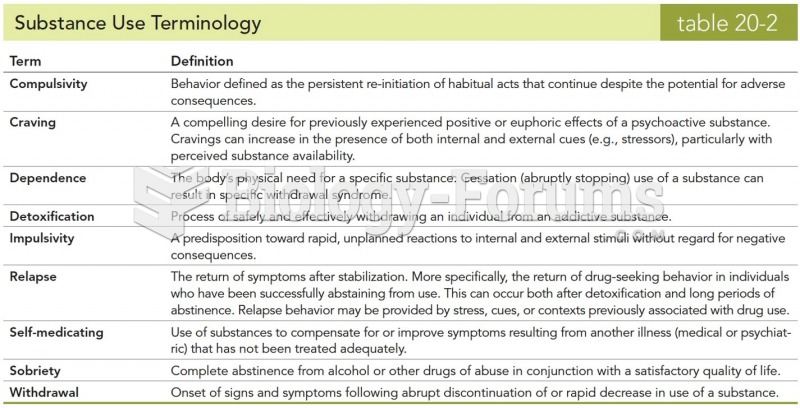Answer to Question 1
Correct Answer: 4
Rationale 1: Eradication is the removal of disease.
Rationale 2: Incubation is the time it takes for the body to process the antigen and mount an effective response.
Rationale 3: Immunity is the body's ability to resist disease.
Rationale 4: Vaccination is the process of introducing something foreign into the body to trigger immune activation before the client is exposed to the real pathogen.
Global Rationale: Vaccination is the process of introducing foreign proteins or inactive cells (vaccines) into the body to trigger immune activation before the patient is exposed to the real pathogen. As a result of the vaccination, memory B cells or T cells are formed. When later exposed to the real infectious organism, these cells will react quickly by producing large quantities of antibodies and cytokines that help to neutralize or destroy the antigen. Eradication is the removal of disease. Incubation is the time it takes for the body to process the antigen and mount an effective response. Immunity is the body's ability to resist disease.
Answer to Question 2
Correct Answer: 1,2,3
Rationale 1: Because this drug is pregnancy category X, a negative pregnancy test is required prior to administration.
Rationale 2: Adverse effects include thromboembolic diseases.
Rationale 3: This drug is highly regulated and is available only through a limited number of pharmacists and health care providers.
Rationale 4: Irreversible graying of the skin is not an adverse effect of Thalomid.
Rationale 5: There is no restriction on who can handle the drug.
Global Rationale: The drug is highly regulated and is available only through a limited number of pharmacists and physicians. Because the drug is pregnancy category X, a negative pregnancy test is required prior to administration in women with childbearing potential. Adverse effects include teratogenesis, thromboembolic disease, drowsiness, and peripheral neuropathy. Thalidomide carries a black box warning regarding its teratogenic effects, as well as a high risk of thromboembolic events occurring during therapy. It does not cause graying of the skin and there is no restriction on who can handle the drug.







